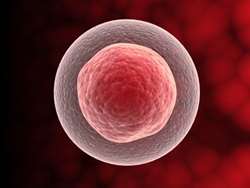
Facilitating Collaboration in Stem Cell Research through Intellectual Property
The goal of the research is to create an infrastructure for designing a policy concerning research, development, and knowledge transfer in the field of stem cells. This policy was intended to encourage scientific innovativeness as well as help lever Israel's position as a leader in this field in the global arena.

A Survey to Examine the Difficulties of Transmitting Nano Technologies from the Academe to the Industry
The TELEM Forum (National Infrastructure for Research and Development Forum), with the assistance of the National Committee for Nanotechnology (INNI( has worked during the last eight years to establish six research centers in the field of nanotechnology funded according to the matching method. The established research centers conducted thousands of studies based on nanotechnology, the effect of which has not yet realized its maximum potential.
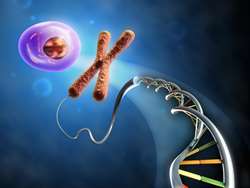
Bibliometric Mapping and Evaluation of Leading Research Groups in Life Sciences
This work deals with the mapping of the leading researchers in the seven academic institutions in Israel (Hebrew University of Jerusalem, Tel Aviv University, Bar Ilan University, Haifa University, Ben-Gurion University of the Negev, the Weizmann Institute and the Technion - Israel Institute of Technology) in the following areas of life sciences: genomics, proteomics, bioinformatics, chemical genomics, and personalized medicine.

Adapting the Demand for Training Knowledge Workers in Local Labor Markets
This research was done within the framework of Pick-Me project – WP 6. In this study data gathered in an Israel Central Bureau of Statistics survey among more than 5,000 Israeli university and colleage graduates were analyzed. The survey examined the extent of the graduates’ integration into the labor market.
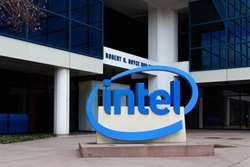
The Contribution of Large Companies to the National Economy
This project deals with the contribution of the large companies to the industrial and technological economy, in order to examine whether the existence of the large companies is essential to the industrial-business ecosystem. Related activities began in 2012, and continued in 2013 in cooperation with the economists Dr. Freeman and Yuval Niv. An additional partner in the project is Teva, which helps with the data required to assess its total contribution to the state's economy.

Science Communication
The mass media strongly influence the public’s understanding of – and engagement with – science and related policy issues. Print, broadcasted and online news form a major science related information source. However, scholarship has devoted little attention to communicating science in the Israeli context.
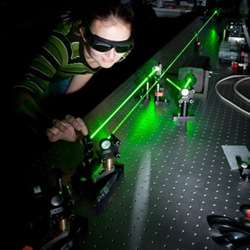
Mapping National Research Infrastructures in Israel
The Samuel Neaman Institute is conducting in 2012-2014 a further study on the subject of ‘Mapping National Research Infrastructures in Israel’. The goal of the study is to build the knowledge database that would allow the creation of a road map for planning national research infrastructures in Israel and to formulate a policy that will define budgets and priorities within a national policy on large research infrastructures in Israel.

R&D Outputs in Israel: Quality Characteristics of Distinct Inventions
The report is the third in a series of studies conducted by the Samuel Neaman Institute on Israeli patents. The first part of the study provides updated data on the scope and characteristics of inventive activity by Israeli applicants and inventors in various patent offices (ILPO, EPO, and the USPTO) and in the PCT track. The report presents trends in patent applications and granted patents according to sectoral attributions, examines Israel's international cooperation in the field of inventive activity, and analyzes trends in cross-border patent ownership. The characteristics of foreign applicants at the Israeli Patent Office (ILPO) are also analyzed.

The Higher Education System in Israel: Issues, Characteristics and Unique Aspects
The goal of this project is to examine various aspects that concern excellence evaluations of universities in Israel. Approaches and issues concerning excellence evaluation are universal subjects that are dealt with by many countries. Correct evaluations contribute to the promotion of excellence, while inadequate evaluations may evoke negative processes and even significant damage.
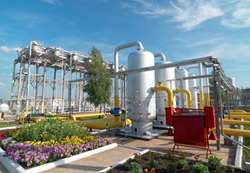
National Policy on the Use of Natural Gas
The application of natural gas in industry requires that the dilemma concerning its transportation in Israel be studied. According to the solution that was selected, a government company transports the gas to the distribution centers and to the largest consumers, but transport to smaller industries is left to private enterprises. We believe that this leads to small and medium industries having an unequal opportunity to realize the benefits of natural gas, and that the present design will mainly affect classic industries, whose energy costs constitute a significant part of their expenses, and whose profits do not allow them to be competitive without replacing liquid fuel with natural gas.
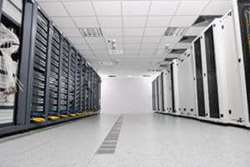
Information centers of MAGNET Consortia
A computerized information center, one of the largest in Israel, operates at the Samuel Neaman Institute. The center was established to fulfill the needs of knowledge management and to supply information science services to consortia that operate within the MAGNET program, and is part of the MAGNET program of the Ministry of Economy.
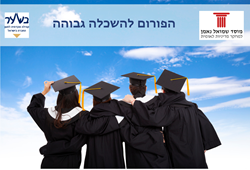
Higher Education Forum
The Samuel Neaman Institute, in collaboration with "Bashaar - Academic Community for Israeli Society", organizes the higher education forum. The higher education forum was established following an international conference held in December 2004 at the Neaman Institute on the subject of "Transition to Mass Higher Education Systems." The goal of the forum is to hold discussions on issues that concern the higher education system in Israel and to hold an open dialogue between the universities, colleges, Israel Council for Higher Education, Planning and Budgeting Committee and other governmental and public organizations.

Indices for Science, Technology and Innovation in Israel and international comparison
At the beginning of the 21st century, the Samuel Neaman Institute identified the need to establish an infrastructure for advancing a systematic and ongoing process of forming national policy on Science, Technology, and Innovation (STI). The objective of this program is to improve the understanding of the STI system of Israel and to answer the question of how processes associated with the development of science, technology, and innovation contribute to increased knowledge, increased productivity, improved economic performance, professional employment, sustainable development, and social welfare. Understanding of the process is based on the collection, analysis, and correct presentation of the various relevant indices and on the analysis of trends as they change over time and in comparison with other countries.
_20190307173216.261.jpg?w=250&quality=60)
Mapping Agriculture R&D in Israel
The Science and Innovation Department of the British Council (through the British Embassy in Israel) has partnered with the Samuel Neaman Institute (SNI) in a joint project, the objective of which is to identify the relevant subjects in the area of Agricultural Science that have high synergy and high potential for cooperation between the United Kingdom and Israeli scientists.
_20190307172519.120.jpg?w=250&quality=60)
Israel-Us Academic Relations
Israel on Campus Coalition (ICC) is a national network of students, faculty members, and professionals in the US, whose goal is to strengthen the pro-Israel movement on campuses across the US. The research department of the ICC addressed SNI and requested a review of the development of academic relations between Israel and the United States over the past decade.

Immigration and Career Choice of Scientific Staff Members
The study, which is conducted as part of an evaluation that explores a possibility to establish a Technion branch at the Negev, examines the return of faculty members to Israel and their absorption into scientific research institutions. The purpose of the study is to understand the researches' location choices, preferring specific research institutions over other alternatives abroad, or vice versa.
_20190307170301.445.jpg?w=250&quality=60)
RISIS (FP7 Project)
Work Package 9 (WP9) is part of the RISIS (Research Infrastructure for Research and Innovation Policy Studies) Project. SNI researchers are responsible for coordination between the different participants in WP9. The aim of WP9 is to develop a geographic clustering method that delineates concentrations of spatial activity regarding science, technology, and innovation.
_20190307165359.710.png?w=250&quality=60)
Learning Infrastructures in the Field of Nanotechnology – EduNano TEMPUS
The EduNano project is part of TEMPUS, an EU program that supports the modernization of higher education in Eastern Europe, Central Asia, Western Balkans, North Africa, and the Middle East. SNI participates in the project together with the nano centers of the Israeli universities and Elbit Systems. In addition, the Technical University of Sofia in Bulgaria, the Polytechnic Institute of Turin in Italy, and the Grenoble Institute of Technology in France participate in the project.

The Role of Israeli Research Universities in the National R&D
This study was commissioned by the National Council for R&D (NCRD). Its purpose was to examine the influence of Israeli research universities on the national R&D system and the reciprocal relationships between the two systems in creating new knowledge and advanced technologies.

Grand Strategy For Israel
The Overarching Strategy Forum was established at the initiative of the former national security adviser to the Prime Minister and the head of the National Security Council, Prof. Uzi Arad.

Science and Technology Education Forum
The Forum for Science and Technology Education started its activities in 2013. The purpose of the forum is to establish and promote cooperation between different sectors in Israel in order to foster K-12 science and technology education. The Neaman Institute decided to focus on this topic due to the importance attributed to science and technology education in Israel for the future of the state and the need to increase the number of high-school pupils who choose to study these subjects on the AP level.

Sectorial Specialization and Diversification Indices for R&D
Economic activity that is concentrated in a small number of sectors could indicate specialization and that competitive advantages are being exploited. However, it can also render the economy vulnerable to risks arising from technological and economic shocks.